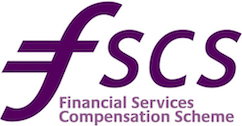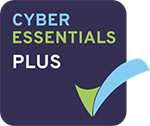“I’m concerned about the increased media coverage of frauds and scams– what are the key areas I should be aware of?”
 Author: Joanna Young (Metfriendly Chair)
Author: Joanna Young (Metfriendly Chair)
As I’m sure we are all aware, the number of scams appears to be on the rise. Although we are all aware of what we should do, scammers are always coming up with new and even more sophisticated ways to catch us out and steal our money or data.
Scammers are increasingly taking advantage of our use of new and ever-changing technology and, our busy hectic lifestyles and, of more concern, they know how to identify and take advantage of the vulnerable and elderly.
My favourite tip is that Government departments do not contact you by text or email unless you have directly contacted them by those means. The NHS may contact you regarding flu or covid jabs and pre booked appointments, but make sure you check the address is correct and never part with financial information.
Several of my friends have nearly been caught out by the latest scam of trying to get you to apply for the latest Government payments on energy etc. Remember, there is no need to apply for most of the Government’s pay-outs such as the cost-of-living payments, regardless of what lots of online adverts suggest. Scams linked to cost-of-living initiatives have become increasingly common in recent months with emails and texts pretending to come from the Government or the UK energy regulator, Ofgem. These contain links to websites, asking you to give personal and financial details to claim funds you may be entitled to. It’s important to remember that council tax rebates are paid directly to your bank account and any discounts on energy bills will be made automatically by your energy supplier. Please ignore any suspicious communications asking for personal and financial details and report any such activity directly to Action Fraud on 159.
 Rob is Metfriendly’s Risk and Operations Director, and his key tip is for everyone to appreciate the value of your personal data and to get a shredder.
Rob is Metfriendly’s Risk and Operations Director, and his key tip is for everyone to appreciate the value of your personal data and to get a shredder.
It’s scary to think about but there are trading platforms for personal information on the dark web with some personal information being sold for $2 and a credit card number with a PIN selling for $35. You wouldn’t consciously put bundles of fivers out in your recycling bin, but that’s what we often do when we put our bank statements, bills and other information out to be recycled. Many of us forget to shred these critical documents when throwing them away. Anyone walking past on bin day can pick up several pieces of paper that could easily help someone steal your identity and then go on to commit crimes. A cost effective cross-cut shredder (costing around £30) is a worthwhile investment to reduce this risk. On the environmental side means that you can easily compost the shredded paper in many instances.
 Paul, our Chief Finance Officer, is concerned about the ongoing growth of online and offline fraudsters who are taking advantage of many people linked to the increasing excitement around cryptocurrency. These scams often ask you to move money and offer fake investments.
Paul, our Chief Finance Officer, is concerned about the ongoing growth of online and offline fraudsters who are taking advantage of many people linked to the increasing excitement around cryptocurrency. These scams often ask you to move money and offer fake investments.
Before making any investment, always research the company and check they’re regulated by the FCA (Financial Conduct Authority) you can check this at https://register.fca.org.uk/s/. If they aren’t, you won’t have any protection should things go wrong. It’s vital to stay in control so never let anyone set up a cryptocurrency wallet, upload ID documents or manage investments for you. Also, don’t share access to your computer, as fraudsters may often ask you to download software so they can access your devices and move money from your accounts without your knowledge. The people behind these scams are clever and devious and they don’t care about the impact it has on their victims. Finally, don’t be pressured into investing. Many scams involving large sums may even give a return in the short term, to convince you to invest more. Remember, if it seems too good to be true it probably is.
 Annette, Metfriendly’s CEO, wants to remind us to keep our phones and cards separate and also to check how we receive notifications from our bank on your mobile phones.
Annette, Metfriendly’s CEO, wants to remind us to keep our phones and cards separate and also to check how we receive notifications from our bank on your mobile phones.
It’s essential to ensure notifications do not show when your phone is locked. Otherwise, as appears to have happened to several gym users in London, criminals have registered victim’s cards on their banking apps and then used the security verification code from the locked phone to complete the registration. Following this, they can access the victim’s bank accounts and transfer money. You can remove the ability to receive these visible notifications by accessing your phone settings.
 Alan, our Head of Membership Support, is concerned by the increase in fraudulent phone calls, emails and texts pretending to be from your bank or financial services provider.
Alan, our Head of Membership Support, is concerned by the increase in fraudulent phone calls, emails and texts pretending to be from your bank or financial services provider.
Always be alert to any requests asking for personal and financial details; a genuine bank will never ask you for your PIN or, full password or to move money. A scam caller will often try to get you to give them the information hastily and push a sense of urgency to get you to act fast. If you feel something is suspicious or feel vulnerable, hang up and then call your financial services provider on their advertised number to report the fraud and remember again that your bank will not ask for your PIN or full passwords. Taking some time to think is essential to sense-check the likelihood that the call is genuine. From a Metfriendly point of view, we wouldn’t be contacting you out of our office hours unless pre-arranged. Remember that fraudsters may already have some information about you, so don’t take this as confirmation that their approach is genuine. Never give out any personal data if you are at all suspicious.
If you’re worried about a suspicious letter or call you’ve received which you believe may be pretending to be from Metfriendly, please call us directly on 01689 891454 during our office hours (08:30 to 17:00 Monday to Thursday and 08:30 to 16:30 on Friday).
The blog above is a preview of a forthcoming London Police Pensioner article. Read it in full at londonnarpo.org/branch-magazine










